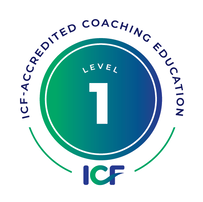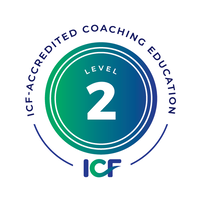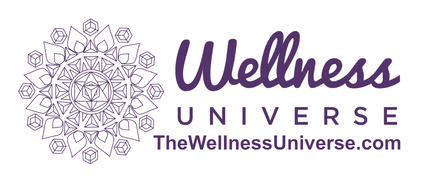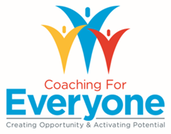|
Laurel Elders:
Welcome everyone, to Coffee, Coaching and Callings, a live podcast created for coaches, leaders, and helping professionals that are on a mission to lead a successful and heart centered life. I'm your host today, Laurel Elders of the Institute for Integrative Intelligence, where it's our mission to elevate human potential through the art and the science of masterful coaching. Today, we will be focusing on business success tips with Kindra Maples. I'm so excited to talk to you today, Kindra! Kindra is the founder of The Culture Crush Business and the energetic host of the Culture Crush Business podcast, which launched in 2020 and has hit 1 million listens. At the one year mark, she took the next step to start the Culture Crush Business, a hub for company culture resources. It supports companies and leaders by bringing the resources for improving company culture into one location. Today we are going to be talking about the impact of culture on organizational success. Welcome, Kindra. Kindra Maples: Hello. I'm so excited to be here with you today! Laurel Elders: Yes, we met through Conscious Capitalism, Arizona, and then reconnected through Kelly, our mutual... Kindra Maples: Yeah. Which is fun too, because Kelly used to work out of the Mac Six space. And I told you that's where I am sitting today while we record the podcast. Laurel Elders: Yeah, I love that. So to kick us off, let's get on the same page. How would you define company culture? Kindra Maples: It is definitely a difficult thing to narrow down sometimes because so much of the culture is what is unseen. So things like valuing people, treating them as humans, trust building, that stuff you can't necessarily see when you walk into a building. Right. And so a lot of to me, what culture is, is a lot of the unseen. It's how you're treating your team, how you're working with your team, how you're building with your team, and the actions that go around with all of that. Laurel Elders: I was talking to a colleague of mine. She's also an executive coach. And we're talking about how sometimes the culture just creates itself, if we're not conscious. Yeah, I'd love to hear thoughts on that or experience. Kindra Maples: Yeah, there's a company I'm actually working with right now, and when we initially met and we're going through kind of the intro and how going to work with an evaluation that we do. In the very beginning, the CEO said, well, we don't really have a culture. I said, oh, you do, you just don't know what it is. There's a culture whenever you put multiple people together. You and I together in this conversation, we're going to build our very own culture. When you go to a networking event, right. How many times have you ever gone to a networking event and you can go to an event where maybe the setup and the structure is the same, but the feel is just different. The people are different because those events all have a culture. When you go to family reunions, when you just go to visit family and you put everybody in one room. My family culture is very different than someone else's family culture. It's loud, it's rambunctious, it's energetic. Right? So you're going to have a culture the moment you put multiple people together in a room. And so I thought it was really cute when the CEO said, we don't have a culture, and I'm like, you do. And then as we went in and we did the assessment and we evaluated their culture, I found the reason why she didn't think they had a culture was because the culture was tied to her. She was a very key point in the culture of the company. And it was a great culture. It still is. They're growing, but we need to help them. We're in the process of helping them right now grow their culture so that if she is removed, the culture can still thrive. Because there's been a lot of cases with companies in the past where the CEO, the founder, they are the culture. And the moment they leave, a company turns to garbage. Or maybe it thrives, but in a different way because the culture is tied to that person. And so the moment you put people together, there's a culture. And you just have to see and feel and define it. And to your point, right. Be intentional about it too. It's not that if you compare two companies and somebody from one company moves to the next company. It's not that that company might be bad, it just might not be a great culture fit for them, right. You could have two companies that do the same thing. But the people and how you're intentional about growing it is going to define what changes and what shifts in those cultures. Laurel Elders: I love that. What are your thoughts on the balance? If it is a balance, between being intentional about it and kind of letting the company, um, I guess, attract the culture? Kindra Maples: Yeah. I think there's a little bit of both, right. I don't know if it is a balance, right. But it definitely is both. And I'll even throw another piece in there. There's the culture and how it's naturally going to build with the people that you're hiring and who you're putting in place. There's the culture that you can help grow by finding the resources or, right, coming to us, will provide those resources that are going to help you build the culture, build the connection, build how you value each other. You trust each other. And then the third piece is the leadership. It's the CEO. The founder. Their influence on the culture is extremely important. And going back to what I mentioned before, right? Being intentional about growing in a way where they have the influence, but the culture isn't dependent on them. But it has to come from them. It has to come from leadership. It can't come from middle manager that really wants to grow the company, that's great. They're going to grow their team. They're not going to necessarily influence the entire company. So, to your point, it's kind of those pieces. There's a little bit that's going to naturally happen. And then there is a piece that has to be intentional about the resources and the influence that you provide to your staff. Laurel Elders: Yeah, that absolutely makes sense. What role do you see culture playing in overall organizational success? Kindra Maples: It plays a role in literally every piece of the company. It truly does. When it's tied to, for example, that company I mentioned, right? Culture is very tied to that CEO. If that CEO were to leave right now, the culture would not stay strong because she's tied to it so much. If a company, um, if you have... I have so many different ideas right now with this. But the culture is so tied to all of the different pieces. And now I'm so excited, and now I'm forgetting your question. Laurel Elders: So organizational success. Kindra Maples: Yeah, it's every piece. So, you talk about it with the CEO. If the CEO leaves, it's tied to them. And then when you look at every other piece and every other section of culture, right. Look at the marketing piece. They have to know the culture. They have to know the company. If they're going to market and tell the story. Look at the recruiting piece. Your team is going to be your best set of recruiters. They're going to tell their friends and family. They're going to tell them the real stuff. If they're telling them the real stuff that's not good, then that's going to affect your recruiting efforts. When it comes to then retention, keeping people, especially right now, there's still this battle of in-person, remote, what's best? Again, it really depends on the company. What's the company providing that flexibility. These younger, newer generations that are coming into the workforce. They're not playing these games anymore. And if it's not a company that supports them and their growth and their flexibility for them to do things outside of work too. Well, again, that's going to affect the recruitment. And now we've talked about recruitment, retention, marketing. If you have that much turnover, well, there goes your bottom line. Your bottom line is now garbage because you're spending so much money on hiring and training. So it really does affect every piece of the company. Um, there's another piece I'll throw out. There's a company we're partnering with right now that focuses on the mental health side. Your culture at your company. If you're not taking care of your staff as humans, as people, you might think it's outside of work, right? They're fine. Whatever's happening outside of work is coming with them into work too. And so if you're not providing the mental health resources to try and improve their outside life with their inside life. Well, then, right there, now you're covering medical. Right now, you're paying for all of the bills and the doctor's appointments. So then again, it's a cost. And so it really affects all of these different areas from the very beginning onboarding somebody to offboarding somebody and who they're going to go talk to about the company, and literally everything in between. Laurel Elders: Wow. I think I just had a big epiphany, as you were, all of that. I was just thinking how there's so much benefit to human beings being in community, and your work is your community, like what you enter into every day. What a huge impact it has on us. Kindra Maples: Yeah. Laurel Elders: Mentally, emotionally, all of it. Kindra Maples: Yeah, it's no longer. I mean, I think about my dad, and I've said this a thousand times to folks. I think about my dad. My dad used to work as a frame technician. He worked on cars. And so he was the one that when you got into a car accident, he put the vehicle on the frame and he stretched it and he moved it. If it was salvageable, to measure it back to where it needed to be. That was his job, right. He can't do his job remote. It can't be a flex work schedule. Right. But going in and doing that job and the companies that he worked for. I guarantee my dad didn't like his job. But he did it because he had to. He had to put food on the table for our family. And I could see the stress that it caused him. And now fast forward, we're having these conversations about culture, about mental health, about inclusion. And we're having these conversations on a more frequent basis. And now there's no excuse for companies, really. I mean, the support is out there. They just have to take the initiative to utilize it. Laurel Elders: Yeah. So true. And I know you and I had spoken about how one of our passions at the Institute is helping companies create a coaching culture and what a positive impact that is having. It's starting to get some wings, the coaching culture, as the research comes out and is showing how the companies with that culture are standing out. I'm just curious because it's so, kind of in its infancy if you compare it to other approaches that have come through. Curious if you've come across any coaching cultures? Kindra Maples: Um, not too many. A lot of companies, I feel like they start with other types of structure, like EOS systems and things like that, to help put the pieces together. And then there's only been a couple where I've started to see more of this coaching influence. And a lot of it is connecting them with resources like you, right. With some of the companies, I mean, a lot of the companies we've worked with, they don't necessarily know the resources, that are out there that they don't know, right. You don't know what you don't know. And so this being, like you said, kind of a new technique, it is now in our hands to be able to share it with more companies so that they do understand that this is a total new direction that they could go in that could amplify their business and their culture even more by allowing that coaching piece to be in the fiber of the company. So I haven't seen it too too much, which is why I was so excited when you and I had the chance to reconnect, because now I get to take everything that you're doing and I get to go and I get to share it with everybody else now. Laurel Elders: I love it. So beyond the coaching culture, I'm just curious, what resources do you see are really benefiting companies right now in terms of having that culture shift? Kindra Maples: Yeah. One of them along the lines of what you're doing. Right. We can go in and we have resources that help with a one time thing. Maybe it's education for diversity, inclusion, accessibility. That's a big space for topics right now. Mental health is a big space of topics right now. We can go in and we can do all of this, but there's a follow up that's needed. And myself and my team will do some of that follow up, but there's a little more when it comes to day to day support. And so that's why I love when we have coaches on our platform and like you, we can refer to you so that they have that support system. Right. Think about it. In any other area of life, when you're a kid and you learn how to play soccer, do you have one lesson and then you just go play and you're a rock star? No. You have a coach that's working with you, right? If you're going to the doctor and you're trying to figure out something that's going on, is it one visit to the doctor? They're like, Here you go, figure it. Okay, you're all done. No. You continue to go to the doctor, right. A financial advisor. Do you meet with the financial advisor? And they're like, boom, here you go, move on with life and nothing will change. No. So we have these coaches in all areas of our life, and a lot of it was when we were younger, and then at some point, it just stopped. And so getting back into the understanding of needing somebody that's going to guide you, support you, and kind of hold your hand for a little bit, right, to get them to the points that they need to be. That's a big piece in the culture space. Some other resources have to do a lot with mental health right now. How can we provide the mental health resources so that people can do some things that are going to take them off depression and anxiety meds. There's a couple of resources right now, one that's called NeuroGen brain balancing. It's crazy. I'll send you the link. They've actually made extreme strides to get people off medicines for anxiety, depression, PTSD, all kinds of stuff. So helping them as a person, right? And then when they go back to work, that's a direct influence on the culture of the company. There's another company we partnered with that does Ketamine assisted therapy. And it's amazing how a couple of these sessions then can actually get somebody, again, off all of these meds. There's resources that we have that focus on communication. That's huge. I have a problem communicating just in my own household. I can't tell you how many times I've sent a text message and the response back is, Are you mad? What? I'm not mad. So the resources that we have for communication, that's another huge space, because one miscommunication is going to throw everybody off. And then how do you deal with that miscommunication? So we have some resources to help with coming into meetings, helping run meetings, facilitate meetings, helping connect the team together so that there's trust. So that you can have an open communication, right? And so I'd say those are kind of the main areas right now. The communication, the mental health, and then the coaching side where those resources are out there. Companies sometimes just don't know. And so how do we connect companies to the resources that they need and the resources that are the right match for them. Because one resource that works for one company might not be the best fit for another company, right? Same thing with the financial advisor, right? The financial advisor. If you've got high dollars, you maybe need a different financial advisor than a college kid that's just learning, right? There's different resources that are better matches for companies and they're there. It's just a matter of sharing them with companies. Laurel Elders: I love that. In the coaching world, we say every single human being and company has their own unique success formula. Period. Dot. So getting them what they're actually needing. And how about if somebody's listening in a leader or a company, um, business owner, and they're wondering, this sounds great, where do I start? It just seems so big, right? Culture. Kindra Maples: It does seem big. Um, again, it's so nice that we are having these conversations. I was that. From middle manager to executive that was trying to improve culture, and I was Googling stuff. I was Googling DEI. And nowadays, right, we say it as if it's its own word. Like companies don't even know what that middle letter is sometimes, right? And so it's more of a conversation now so that we don't have to just Google. We don't have to ask chat GPT, right? The resources are there. It's just a matter of getting them. And that's why I started this company, is so that the resources are all in one place. I don't have to be the person building a company on mental health and diversity and inclusion. I don't have to be the expert in a thousand areas. My space of expertise is connection. And so we are very much a hub. So when companies are listening and leaders are listening and they're like, this sounds great, oh my gosh, where do I start? We start with an initial assessment. We'll do a quick chat, right? Make sure it's a good fit. Then we'll actually do a deep dive evaluation. So, that evaluation is eight different areas. Those are the areas that we have resources so that we can start to find the pieces. Because most of the time, some of these companies are doing great and there just might be one thing that's off that's really influencing the culture of the company. And so we do that assessment, we do the evaluation, then we put the plan together. What's the plan that's going to target the areas that they need? And to your point, right, every company has their own solution. I cannot give the same formula to ten different companies and have them succeed. One company may have communication issues. One company may have issues where they need resources for mental health. One might need to add some diversity. They're all going to have their own equation, right? So we do the assessment, we put together the plan. Who are the partners that are going to come into play? Essentially, they're the puzzle pieces that are going to fill those gaps for the company. And then we move on to that stage of thriving to help that company really transform their workplace. And then I follow up on both ends. I follow up with the company, I follow up with the resources. So we're continuously vetting everybody, making sure that the resources we're providing are good partners and so are the companies that are using these resources. And I say that because there are some companies out there that, I'll be honest, they don't want to work with. If they don't see that there's a problem, right? If it's just the company staff maybe saying, hey, this is such a horrible company, how can we improve, blah, blah, blah. If it's not leadership and it's not executives and board members and everybody on board with the need to improve, then it's not going to. And so, at least for me, right there's, that balance of everybody has really got to be bought in for us to really help. And that's what will take it to that thriving. Laurel Elders: Yeah. Oh, it's so true. Transformation takes willingness. If there's no willingness, it's like... Kindra Maples: Yeah, yeah Laurel Elders: I love it. So we're on Facebook Live and Kelly said she loves seeing us together. Shout out to you, yay. Kindra Maples: She's another one of these connectors, right? Laurel Elders: Yes! Powerful. Kindra Maples: She knows when she's working with her clients. Those that don't know, Kelly has a company that's all focused on marketing. Although now it's more than marketing, really. So she knows when she's working with the client. Okay, here's the gaps where she can fill. Now, if she starts to work with a company and sees, wow, they have some emotional issues, like, let's figure out what those other resources are, she knows that she can't fill those gaps, so who can? Then we can come in. Right. And so that's the really cool part about these relationships, like Kelly and with you, right. Where we all fill in different pieces, and we're tackling these companies as a whole to be able to put those puzzle pieces back together. Laurel Elders: Yes. So powerful. And I'm curious what called you to this work? Kindra Maples: So my background is actually in animal behavior and training. Laurel Elders: Fascinating! Kindra Maples: Yeah. So back in the day, I was that kid that was like, I want to work with animals. I want to save the planet. And so, I mean, I did part of that. I haven't saved the planet yet. It's still on my bucket list. But I worked with animals and did training for over 15 years. And when I was in that space, it started with just training animals, training them to take care of really their own husbandry. Right. So that I didn't have to.... I could just have them come over to the fence and take some medicine. Then it moved on to helping train other people, to train animals, to then take them out for presentations, to teach the public. And then it turned into more of the operations, the leadership side. And I realized what was happening. I was taking everything I learned training animals, and I just shifted. And I use it with people now. So, compassion, communication, connection, trust, these are all the fundamentals when you're working with an animal that doesn't speak your language. And they're all the same things that transfer when you're working with people. And so that went into, I worked in the operations leadership side for a little while with a couple of companies, and then I say, I had the pleasure to work with some companies that had a phenomenal culture, and I've had the pleasure of working with some that did not. And so that really was the final piece that led me to where I am. Because like I said earlier, I was the one that was searching for resources to help improve culture. And you're Googling this stuff, they're all over they're all over the web. You don't know what you're getting. You don't know if you're getting the right resource. If I went to Google, um, coaching culture. Am I going to get you online? Who knows? Probably not. I might end up with who knows what company just because they paid for some Google space ads, right? And so there wasn't anything really out there. There wasn't a place. It wasn't like I needed something for the house, and I go to Amazon, everything is there. It wasn't it wasn't like that. And so I saw that as a gap. And then along the same timeline, I had a couple of interactions with some leadership that just it wasn't good. They were those companies that I mentioned earlier. They need the help and they won't take the help. Um, and I really just decided, okay, let's start to have the conversation. And that's when it started as a podcast. I had the opportunity, actually, out of Max Six here with Phoenix Business Radio X to do a podcast all on company culture. And after a year of doing that and having the conversations, so many people were coming to me and saying, hey, listening to your podcast, do you have a particular resource that you would recommend for this? Or this, or this? And it just kept happening. And that's when I put all these pieces together for me right to go, huh, they have the same gaps that I had when I was looking for these resources. Let me put them all in one spot. And so now I get to take my skill of being a connector, and now I get to do it on, like, crazy level and make sure that companies have the resources that they need. And I don't have to be the one to be the puzzle piece. There's a puzzle piece out there that they need. And I probably have a connection and a resource. If I don't, at least I'm in that space. I'm going to find it a lot faster than a company that is struggling and trying to Google online. And then it fell into place. And now I'm filling this gap so that companies know when they are in that space and they need that help. They know that they can go to one spot and find all of those resources. Laurel Elders: And reliable resources. Amazing. I was so excited to hear about the business that you pulled together and how fun that it just kind of one thing led to another. It just was like this unfolding for you. Kindra Maples: It really was. And I've had friends for years that have said, Kindra, you should start your own company. I'm like, I don't know what I would do. I kept thinking of it as, like, a thing, like, I don't make anything, I don't knit. What would I do? And this just came and it was all of a sudden this, like, oh, duh, this is what I'm supposed to be doing. Laurel Elders: Yeah. Amazing. I'm so grateful you said yes to what was calling you on this. And if somebody wants to find out more information about your services, where can they find you? Kindra Maples: Yeah, I'm on LinkedIn all over the place. Um, but they can go to the website. It's www.culturecrushbusiness.com and that has contact for us. Podcast stuff, events coming up, all of that. Laurel Elders: Excellent. Thank you so much. This has been so delightful to just sharing this conversation with you because business success is a huge passion of mine, leader success. So thank you. Kindra Maples: Thank you. This has been a blast to just kind of sit and share my end of the story. Usually I'm in your role, and I'm asking the questions. So it's kind of one kind of fun to be the one on the other side, to be able to share everything. So thank you. Laurel Elders: Yes, absolutely. All right, thanks, everybody, for joining us today. We hope these messages have been a lantern to you on your path as you expand your success as a coach, leader, or helping professional. You can join the conversation further at Integrativeintelligence Global. Bye for now.
0 Comments
Leave a Reply. |


 RSS Feed
RSS Feed





